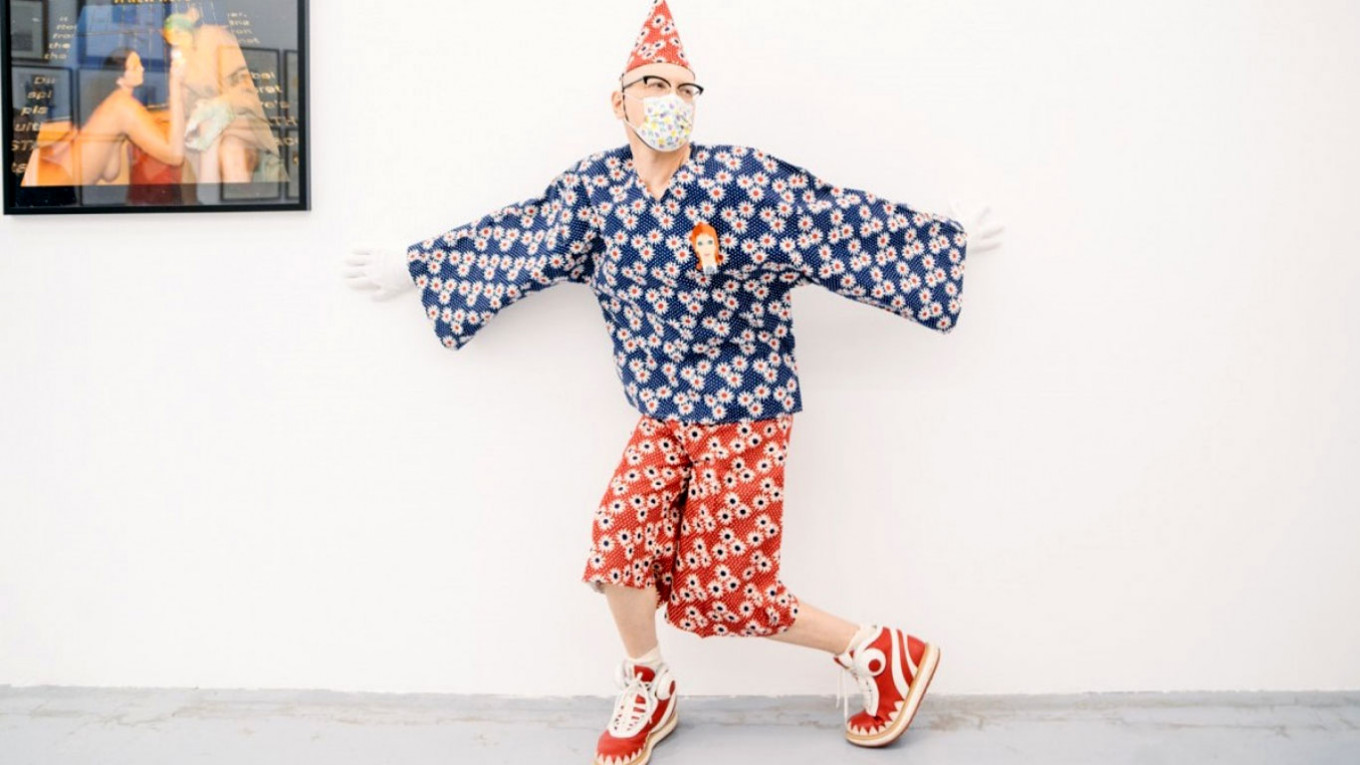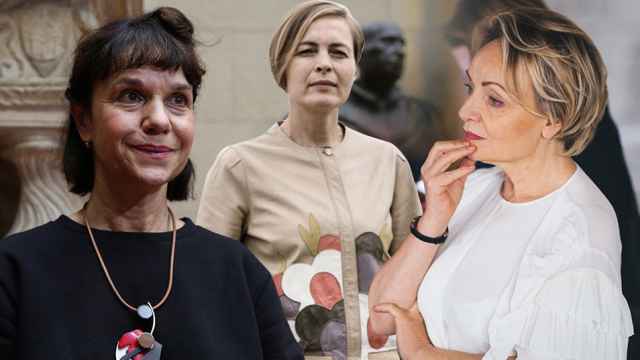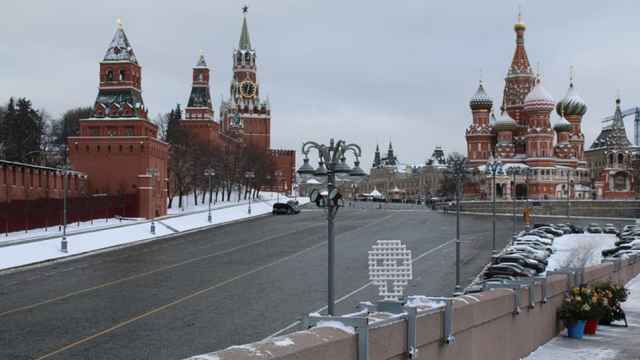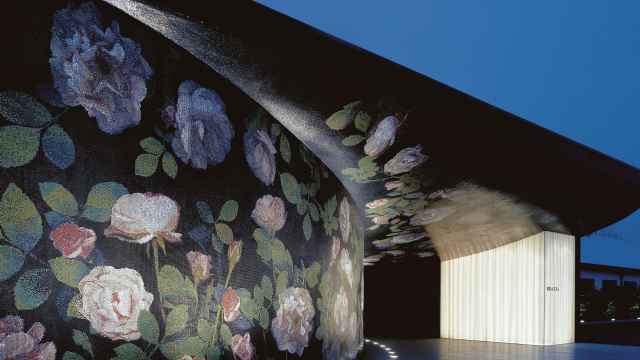The Here Gallery on Taganka has opened a show in memory of one of the most eccentric Moscow performance artists, Vladislav Mamyshev-Monroe (1969-2013). The show is called “The Magic Rainbow Flower” after a children’s book by Valentin Katayev about a multicolored magical flower that grants wishes. The show, a memorial to this unique Russian performance artist, is filled with photographs, collages, texts and works of art.
In the West, particularly in America, the transformation of a man into a flamboyantly dressed woman is nothing shocking and barely out of the ordinary. But in conservative Russia his performances were often met with bewilderment and sometimes even protested by Orthodox Christian activists who objected to “sodomitic” images.
Mamyshev had two favorite women he loved to transform himself into: the American actress Marilyn Monroe and the Soviet star of Stalinist cinematography, Lyubov Orlova. His witty and intelligent transformations were very powerful. Occasionally he would transform himself into Soviet pop singer Alla Pugacheva and show up in venues without warning, shocking the public. But Mamyshev-Monroe wasn’t and didn’t perform a parody of women. His work was a send-up of the ubiquitous and dominant vulgarity and stereotypes of sexuality in show business.
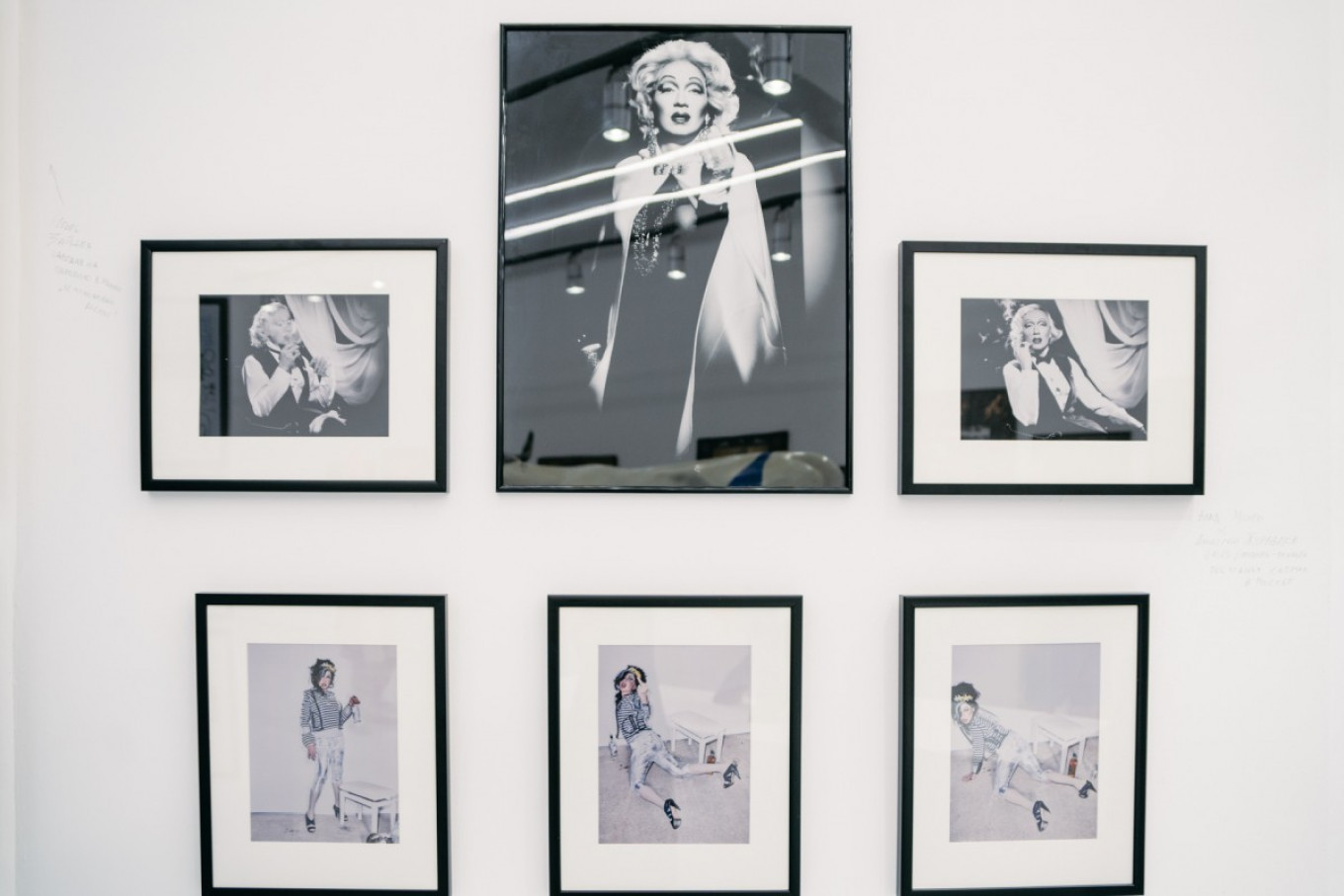
If Vladislav Mamyshev’s transformation into Marilyn Monroe was influenced to some degree by Andy Warhol’s prints and might seem derivative, his Lyubov Orlova was utterly original. He was very interested in the image of this most American of Soviet actresses. In one photograph, she is posed against the background of the cruiser Aurora, sitting on the St. Petersburg river promenade with a young sailor she has just snagged. In another she is speaking on the telephone with pursed lips next to an enormous Soviet-style buffet. Or she is lying in her coffin as another Soviet movie star, Vera Maretskaya, leans over her. Andrei Bartenev, an artist and the curator of the show, said that Maretskaya is trying to poke her with a safety pin to find out if the old witch is really dead.
Mamyshev-Monroe died tragically: he drowned in a pool in Bali in 2013. Bartenev, who was also a close friend of Mamyshev, said he appears to him in his dreams and demands to be brought back to life.
Many of the works in the show are by contemporary artists and imitators from Moscow and St. Petersburg, representatives of the world of glamour, people who knew Mamysehv-Monroe for decades and spent many evenings drinking, carousing and misbehaving with him in nightclubs and restaurants.
The photographs are compelling, like Mamyshev in drag with Sharon Stone. Stone looks rather modest next to Mamyshev, who is the extravagantly dressed sultry woman in heavy make-up. Two photographs in the show have never been exhibited before: the artist made up to look like Marilyn Monroe but with his genitals fully visible.
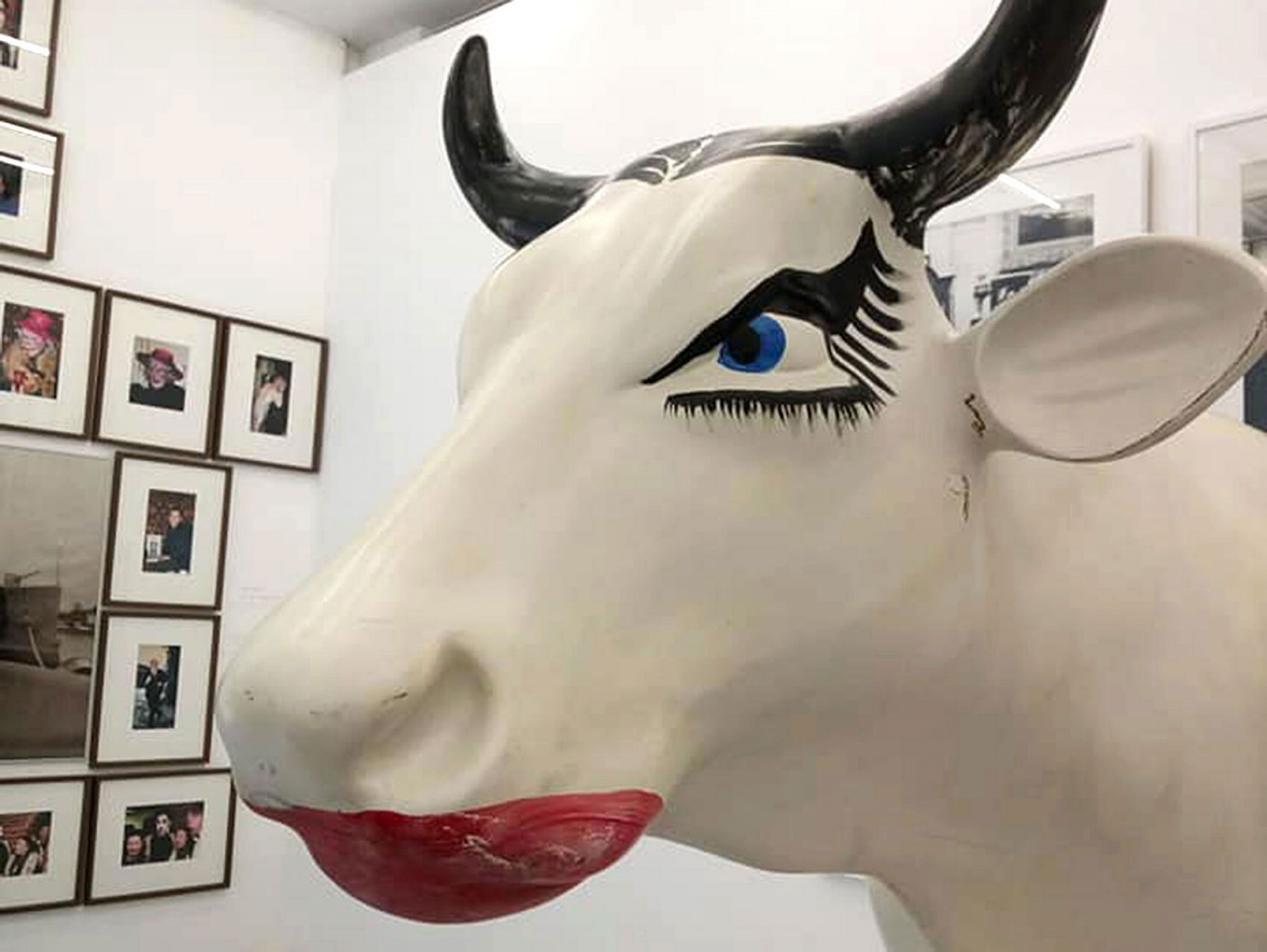
One of the key exhibits is an enormous sculpture of a horse from the collection of the musician Igor Butman. Mamyshev-Monroe painted the cow in ladies’ underclothes: her back legs are encased in lacy stockings held up by a garter belt, her udder is covered by something like a bra, and her front hooves are in knee-length red gloves. The cow’s lips are painted bright red, her eyelashes are heavily mascaraed, and she has a charming curl under her horns. His cow was part of a Moscow art installation that placed cows painted for the project throughout the city.
The show is a celebration of this unique artist and a delight for anyone who loves all things outrageous — although it must be said that there is already a slight note of the everyday in what once the unthinkable.
The show runs until Sept. 1. For more information, see the gallery site.
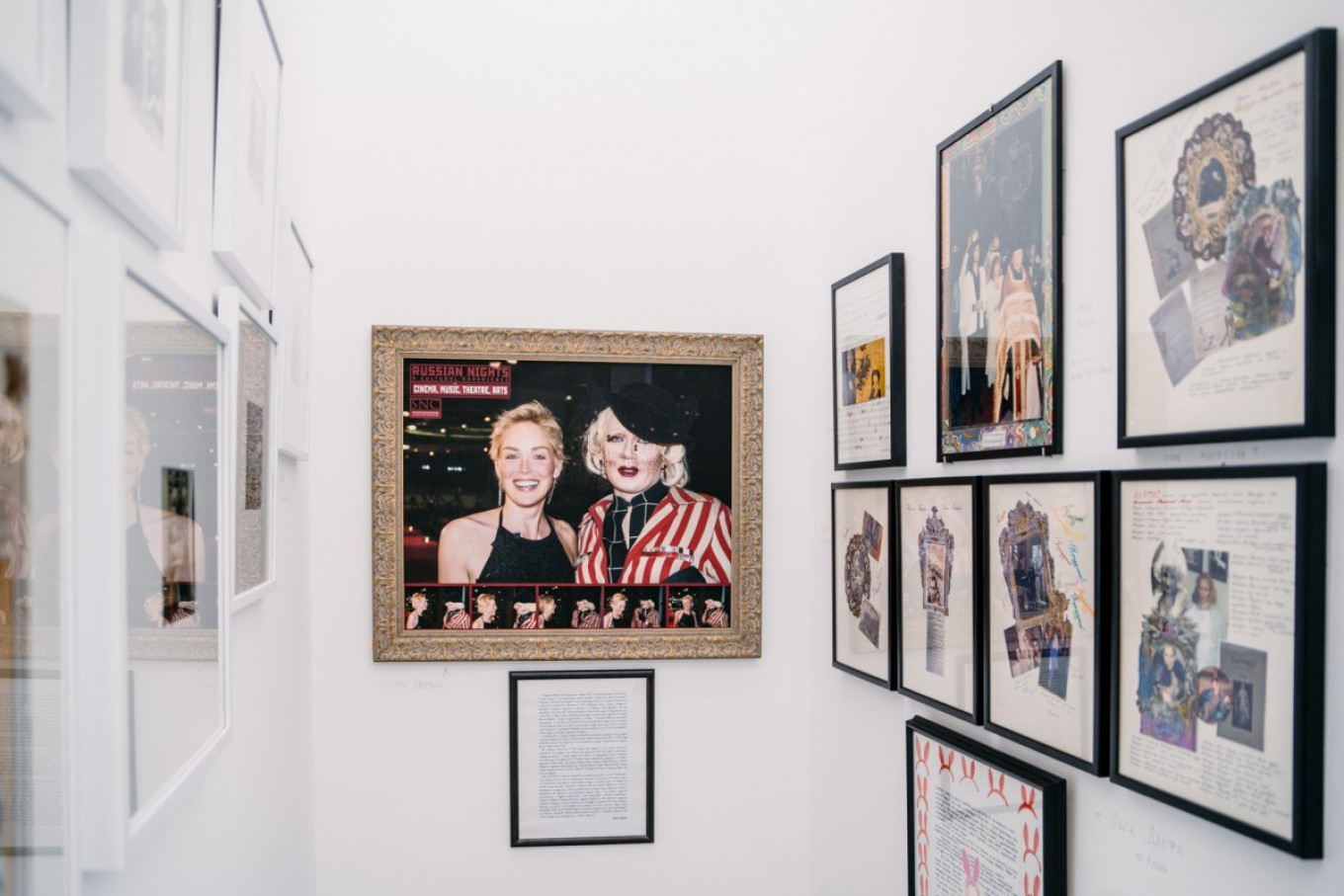
A Message from The Moscow Times:
Dear readers,
We are facing unprecedented challenges. Russia's Prosecutor General's Office has designated The Moscow Times as an "undesirable" organization, criminalizing our work and putting our staff at risk of prosecution. This follows our earlier unjust labeling as a "foreign agent."
These actions are direct attempts to silence independent journalism in Russia. The authorities claim our work "discredits the decisions of the Russian leadership." We see things differently: we strive to provide accurate, unbiased reporting on Russia.
We, the journalists of The Moscow Times, refuse to be silenced. But to continue our work, we need your help.
Your support, no matter how small, makes a world of difference. If you can, please support us monthly starting from just $2. It's quick to set up, and every contribution makes a significant impact.
By supporting The Moscow Times, you're defending open, independent journalism in the face of repression. Thank you for standing with us.
Remind me later.


